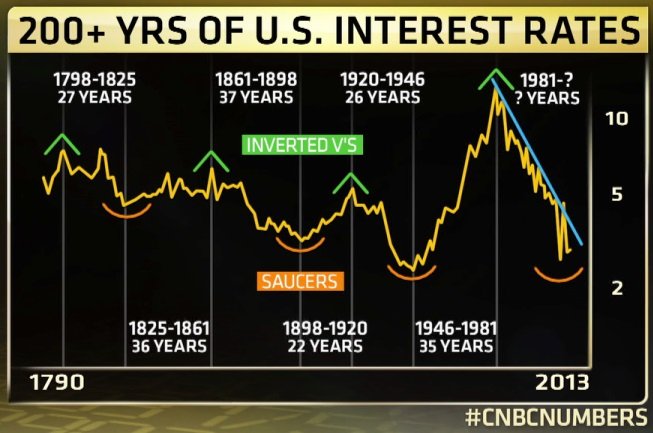Scott Kahan: Panic is not investing

Scott Kahan: Panic is not investing: With all the volatility in the financial markets in recent weeks, we dialed up Chappaqua resident Scott M. Kahan, President of Financial Asset Management Corp. in Chappaqua and NYC, for some local investment advice. Here’s what he had to say.
Are your client’s pulling their hair out with the recent market volatility? No one likes volatility but my clients who have been through several cycles with me know that you have to stay the course. The recent sell-off in stocks was a correction that was long overdue. Still, they call to say, “I know what I should do,” but they need some reassuring words. That’s an opportunity to re-emphasize the principles of long term investing, the goals we set out for their portfolio and make sure their allocations are still in line with their strategic needs.
How do you manage emotions when the headlines are flashing red? We stay in touch with people to confirm that the world is not going to end. No one can predict the future but we always redirect that way. Sell-offs can be buying opportunities for clients underweighted in equities. But it can be scary to buy when markets are down. Investors like to see the markets bounce back – which is not necessarily the right time to buy. So we go back to the basics of what their investment strategy, what they’re investing for and how changing asset valuations have affected their portfolio allocations.
Panic is not a strategy
Are your clients buying? It depends. For people who are sitting on a lot of cash because they may have recently received a distribution from a bonus, an inheritance or an asset sale then this might be a good time to buy.
Some investors are eager to buy equities when the market is down. But if their portfolios are properly balanced there may be no need. I remind them that volatility is like throwing a rubber ball on the ground. It doesn’t only bounce once. After the big bounce it’s going to keep bouncing until it stops.
 So always keep a long-term perspective? Always keep a long-term perspective on your goals and your strategy. There’s an old saw in investment circles, “panic is not a strategy.” That relates to buying and selling. Volatility doesn’t change your goals. The markets of 2008-9 are not far behind in our rear view mirror. But this is not 2008-9 all over again. We’re in a very different economic scenario.
So always keep a long-term perspective? Always keep a long-term perspective on your goals and your strategy. There’s an old saw in investment circles, “panic is not a strategy.” That relates to buying and selling. Volatility doesn’t change your goals. The markets of 2008-9 are not far behind in our rear view mirror. But this is not 2008-9 all over again. We’re in a very different economic scenario.
Isn’t a correction a good time to reallocate a portfolio? Sometimes. We review portfolio returns monthly and reallocate quarterly if needed. Long-term run-ups are more likely to require asset rebalancing. A 10% correction may not change your model very much. If your target is 50% for equities a 10% correction is only going to drop your allocation a couple of percent. There may be no need to move at all. A client just starting out may want to jump in but we try not to get ahead of goal setting and financial planning before we buy.
Keep calm and carry on
It gets back to planning? Yes. When we see extreme market volatility we will look at returns and asset allocations more often. Sometimes when markets are down investors may be tempted to change their models. But if your goals haven’t changed, if you are still planning for retirement or buying a house or paying for college, then your model shouldn’t change. So it’s always about your allocations and if you’re still in range – keep calm and carry on.
What about timing the market? We never try to time the market. A lot of the financial press is obsessed with market timing. But if you pay attention you will find that most market prognosticators in the headlines are either perma-bulls or perma-bears. The bulls are always saying the market is going up.  The bears are always saying the market is going down. If you keep saying the same thing eventually you are going to be right. As the saying goes, a stopped clock is right twice a day.
The bears are always saying the market is going down. If you keep saying the same thing eventually you are going to be right. As the saying goes, a stopped clock is right twice a day.
The problem with market timing is that historically if you’re out of the market for just a few days over a long period of time you can miss a large portion of the gains. In the short term markets are irrational. But in the long term markets are rational. Proper financial planning takes the long-term perspective and helps keep the emotions out of investing.
Aren’t interest rates still the big theme in the market? There is no doubt that we have just completed a long term cycle of declining interest rates and that we are all anticipating a new period of rising rates. But think back to when rates were high in the 1970s and 80s. It took a long time to get where we are today. Interest rates tend to move in 30-year cycles. They don’t go straight down and they won’t go straight up.
Everyone is focused on the Federal Reserve Bank who has indicated that they are looking at a quarter point increase in the federal funds rate. But they may stand pat after that for quite some time. It may be counter-intuitive but a rate hike is likely to cause markets to rally. Markets don’t like uncertainty. Rates are certain to rise so the sooner it does the happier the market will be.
Building ladders
What do you say to income investors? If you think the way to invest is to dump bonds before a rate increase you would have done that four years ago. And you would still be waiting for rates to rise and forfeited four years of income. It comes back to knowing your goals and why you are investing.

Louise Yamadas chart of 222 years of interest-rates
Nobody has a crystal ball so if you are looking for income for retirement or to buy a house or pay for college you have to stay invested. Just stay on the short end of the maturity spectrum to manage interest rate risk. Build your ladders and as your securities mature you will have the chance to find higher yields as rates rise over the long term.
Final advice? Sometimes things look more complicated than they are. In some ways there’s too much information out there. There’s always an isolated comment that makes big headlines and can confuse investors. Remember, the markets are always looking for a reason to buy or sell and they always find one. Just know your goals, don’t look at the crash victims on the side of the road, and stay focused on where you are going. Even if it seems you are always buying at the wrong time, in the long run you’re going to be all right in the market.
Financial Asset Management Corporation has provided fee-only financial planning and wealth management services for individuals and small businesses in the Tri-State area since 1986. They serve 140 clients and manage over 150 million dollars in assets. FAM Corp. President Scott Kahan is a Certified Financial Planner professional and has served on the Board of Directors for the Horace Greeley Scholarship Fund. (Financial Asset Management Corp., 26 South Greeley Avenue, Chappaqua, NY, (914) 238-8900; www.famcorporation.com)


















